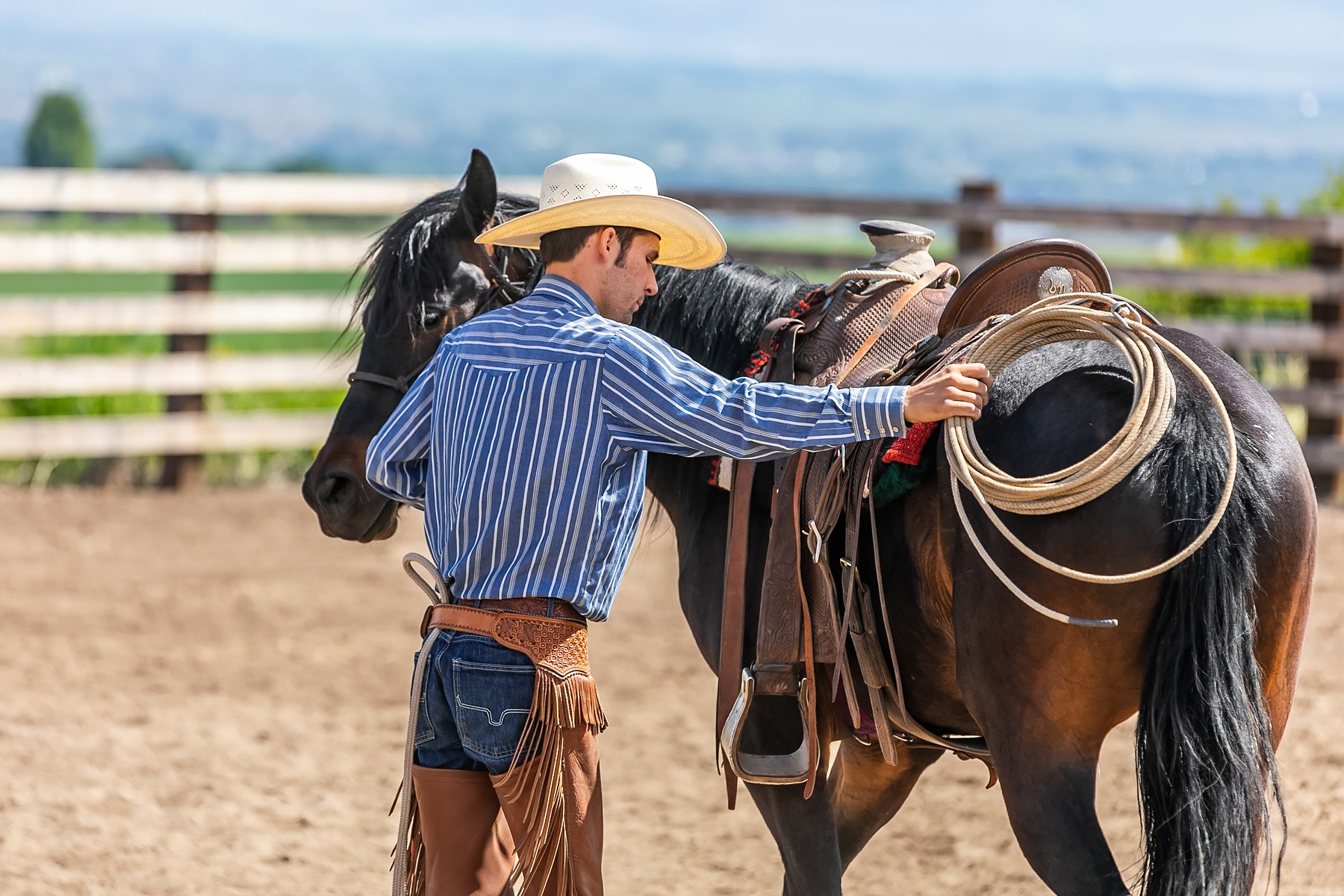Nova has spent the entirety of her life here at SAFE. Her first breaths, steps, and moments were here on the farm, witnessed and overseen by the people who would go on to take care of her as she grew from a gangly filly into a long-legged mare. It is safe to say that we know Nova quite well.
When she entered her fourth year, Nova underwent a change in demeanor that was uncharacteristic. We first noticed it when she was getting her feet trimmed, something she was no stranger to, having seen the farrier every 6 weeks since she was a tyke. But at this visit, the brush of the farrier’s shoulder against her flank as she reached for a hind leg sent Nova into a tizzy. She was inconsolable from that point on, with every attempt to touch anywhere near her hind end resulting in a great deal of squealing and kicking.
This was behavior we had never before seen from Nova. Sure, she was at times a rambunctious young lady, still in the relative early days of her training, but we had not had any trouble brushing her rump, combing through her tail, or picking up her hind feet. But now, it was as though a switch had been flipped, and her rational mind was clicked off. And perhaps it was, in favor of something more base: hormones.
And said ‘horror-mones’ did seem to be the case. Nova’s season hit her hard and strong, clearly an unpleasant time for the lady, as well as for anyone who was tasked with handling her. We had our vets out to draw blood and see if the cause was, indeed, hormone-related, and if there was something more serious going on. When we first described the behavior to them, they wondered about the possibility of granulosa cell tumors, a common type of tumor to affect a horse’s ovaries, causing changes in demeanor. Blood work would help us pinpoint if that were the case.
When her results arrived, they showed that Nova’s testosterone was slightly elevated (normal range being 20 — 45 pg/ml), with Nova’s reading at 52.3 pg/ml. Because of this slight elevation, our vets recommended re-testing in 60 days, which would also coincide with fall, a time when her cycle should be breaking. If her testosterone levels were continuing to increase, it may be indicative of an early-stage tumor. However, when we drew blood for a recheck several months later, her testosterone was back in normal limits again, leaving our vets to believe that a granulosa cell tumor was not a concern at present. However, with her symptoms still in full force, they gave us the all clear to start Nova on Regumate to help try and suppress her cycle.
We were also curious if some of her reactivity was behavioral. We have had some experience with mares whose.. sensitivities, were not entirely related to things outside of their control. We were hopeful that in helping Nova understand that things touching her didn’t mean the sudden onslaught of a stallion, she could dismantle some of those intense reactions. And after a few days of consistent work, there did appear to be some changes happening — while still reactive at a rope or flag petting her hind, she was a bit less so, and she started each day a little more accepting than the day before.
Then, as we crept back into fall, something happened: Nova settled back into the mare we were more familiar with. She stopped having the same over sensitivity and reactivity to her hind end being touched. She allowed her back feet to be handled and trimmed again. All the while she looked at us with those sweet doe eyes of hers, as if to say, “who, me?” We were still cautious with her, but such a dramatic shift in her behavior seemed to belie that hers was, indeed, a seasonal problem above all else.
So as spring came back around, we shouldn’t have been so surprised that so did Nova’s tendencies towards the ‘kick now, think later’ approach. In this new year, we had also made the decision that Nova should have some time under someone else’s saddle, but when we loaded her in the trailer bound for our good friend Dylan’s training program, we sent the Regumate right along with her, hopeful it could play a nice second fiddle to the great work we knew Dylan would do with her.
And indeed, under Dylan, Nova continued to blossom into the lovely riding horse we had started to know her as. Her issues, for lack of a better term, seemed to be confined to her hind region, and over in Ellensburg, along with putting her through the normal paces, Dylan spent a great deal of time trying to help her through the sensitivities of her hind end.
Unfortunately, it did not appear that the Regumate was making significant changes in her demeanor. She was due for her annual dental, and we decided to have her more thoroughly checked out under sedation to ensure we hadn’t missed anything last time we’d drawn blood. Nova was seen by the folks over at Central Washington Equine Hospital, in particular by a Dr. Lindley, who was able to palpate her ovaries under sedation, where she found her left ovary to be significantly larger than her right. She once again drew blood to check for hormone changes, but when the results came back, they revealed that Nova’s testosterone was still in normal range. So the mystery as to why exactly her reactions to her heat cycles are so intense remains an ongoing puzzle that we continue to brainstorm ways to solve.
Nova has since returned from off-site training, and is back at SAFE where we are evaluating the next steps to take to help her feel her best (and stop trying to kick people, that too).


